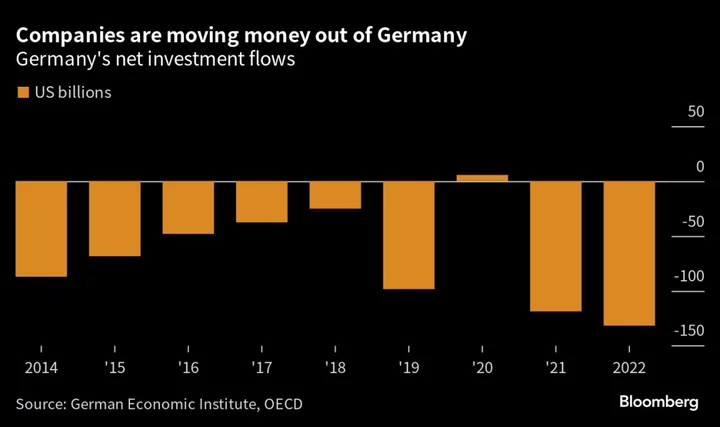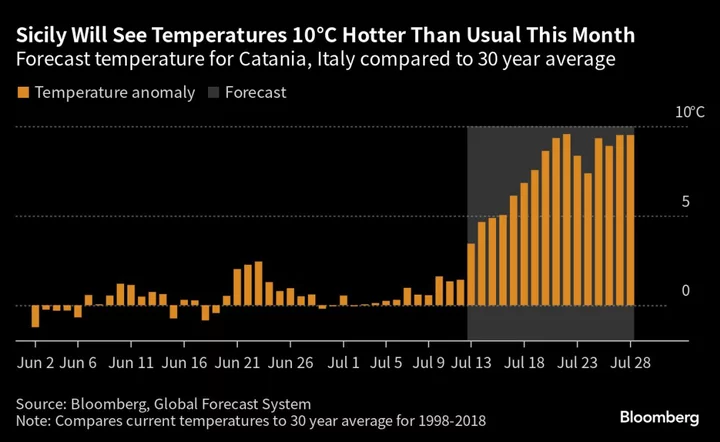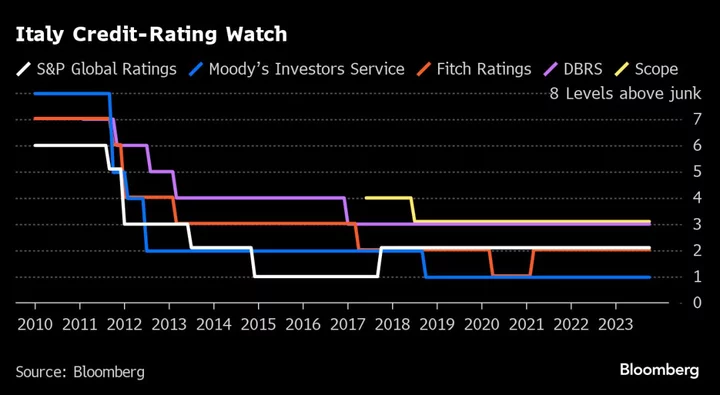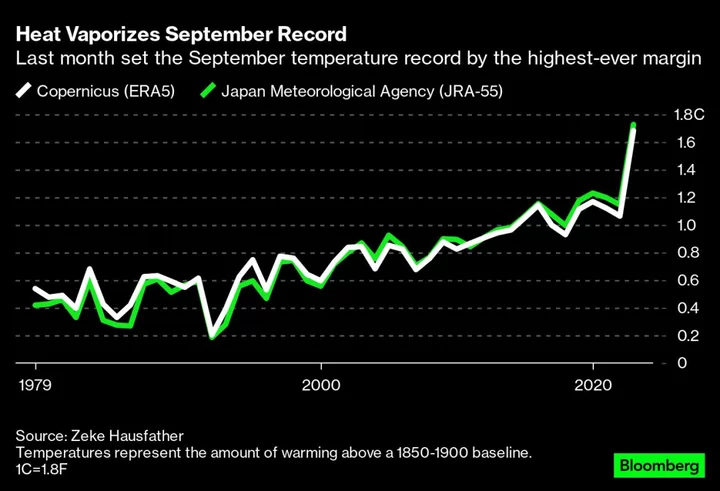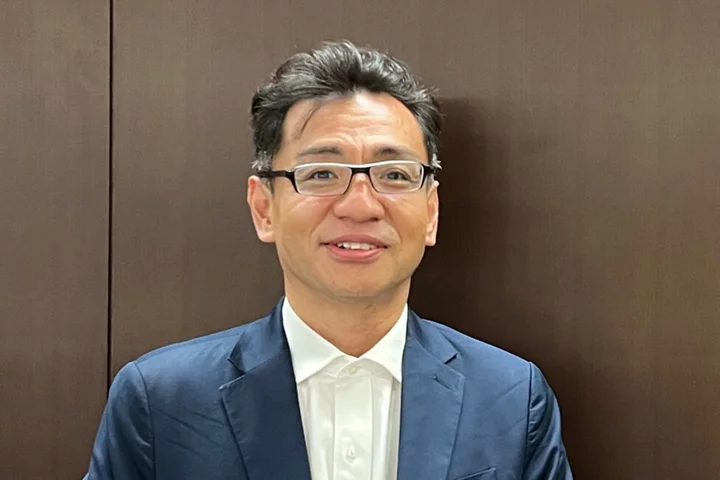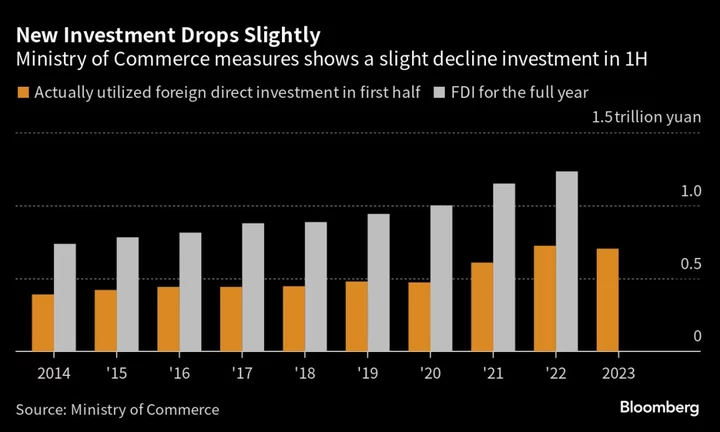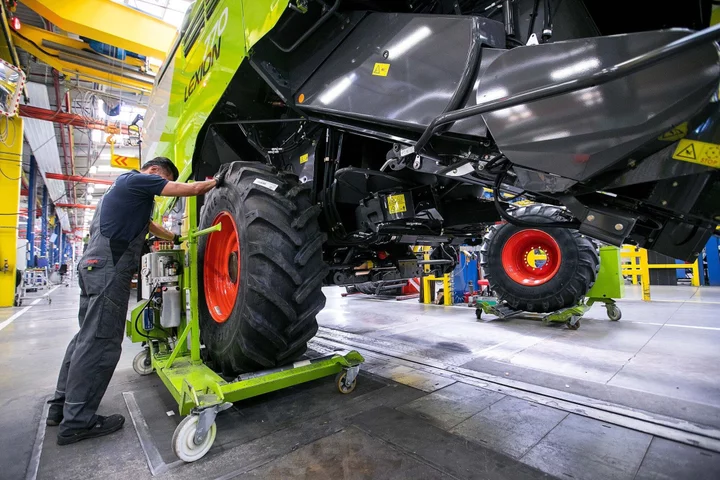Siemens AG is set to unveil a new investment in Germany on Thursday, a moment Chancellor Olaf Scholz is looking to seize as part of his efforts to reverse an exodus of capital from Europe’s biggest economy and creeping de-industrialization.
Scholz will share the stage at a vast Siemens facility in Erlangen, Bavaria, with Chief Executive Officer Roland Busch to showcase Germany’s piece of the industrial conglomerate’s €2 billion ($2.2 billion) global investment plan to expand its high-tech manufacturing in Asia, Europe and the US.
The Social Democrat leader and his ruling coalition in Berlin are trying to respond to dire warnings from lobby groups about the longer-term outlook for manufacturing, as steep energy prices, a crippling shortage of skilled workers and subsidies in the US and Asia risk eroding the nation’s industrial base. More than €135 billion of direct investment flowed out of Germany last year, while only €10.5 billion came in — deepening an “alarming” trend, the German Economic Institute warned in a recent report.
The pain is being felt across German manufacturing. Chemical behemoth BASF AG has closed a number of energy-intensive factories at its main Ludwigshafen site. At the same time, cheaper energy and lucrative green-tech subsidies in the US have put Europe on the defensive to protect investments from carmakers and battery producers like Stellantis NV and Northvolt AB.
For Scholz, Siemens’ investment offers a much needed example of Germany as a destination for next-generation companies. Once focused on heavy-duty equipment, Siemens has revamped its business to center on higher-margin, software-driven products, such as factory automation devices and smart infrastructure to help industrial customers reduce their carbon footprint. The shift has driven profits in recent years.
Erlangen is Siemens’ largest location globally. In addition to hosting research and development, it’s the administrative home for large parts of its train-making, mobility solutions and smart infrastructure units. The spun-off health-care division Siemens Healthineers is also headquartered there, where it manufactures medical-imaging devices. Siemens has already announced that will convert former research facilities in the Bavarian town into a 540,000 square meter campus for more than 20,000 employees until the mid-2030s.
Of its €2 billion global investment plan, Siemens has already earmarked €340 million for factories in Singapore and China, and roughly €200 million to expand rail manufacturing in the US. That means the Erlangen investment will likely be modest compared to others Scholz has promoted.
The chancellor attended the signing ceremony in June for a deal with Intel Corp to build a €30 billion semiconductor plant in Magdeburg — a project that included about €10 billion in German subsidies. In May, Infineon Technologies AG hosted Scholz to break ground on a €5 billion chip plant in Dresden. And in February, Scholz met with business and political leaders in Saarland to celebrate a $3 billion deal between auto supplier ZF Friedrichshafen and US semiconductor maker Wolfspeed Inc. to make chips for EVs.
Yet, there are few broader indications that the string of deals has been enough to swing the momentum to Germany’s favor. Industrial production has continued to fall this year, and with it investor confidence. Concerns among political leaders and executives are growing that the economy is taking longer than they expected to rebound from its winter recession.
Author: Wilfried Eckl-Dorna and Kamil Kowalcze

